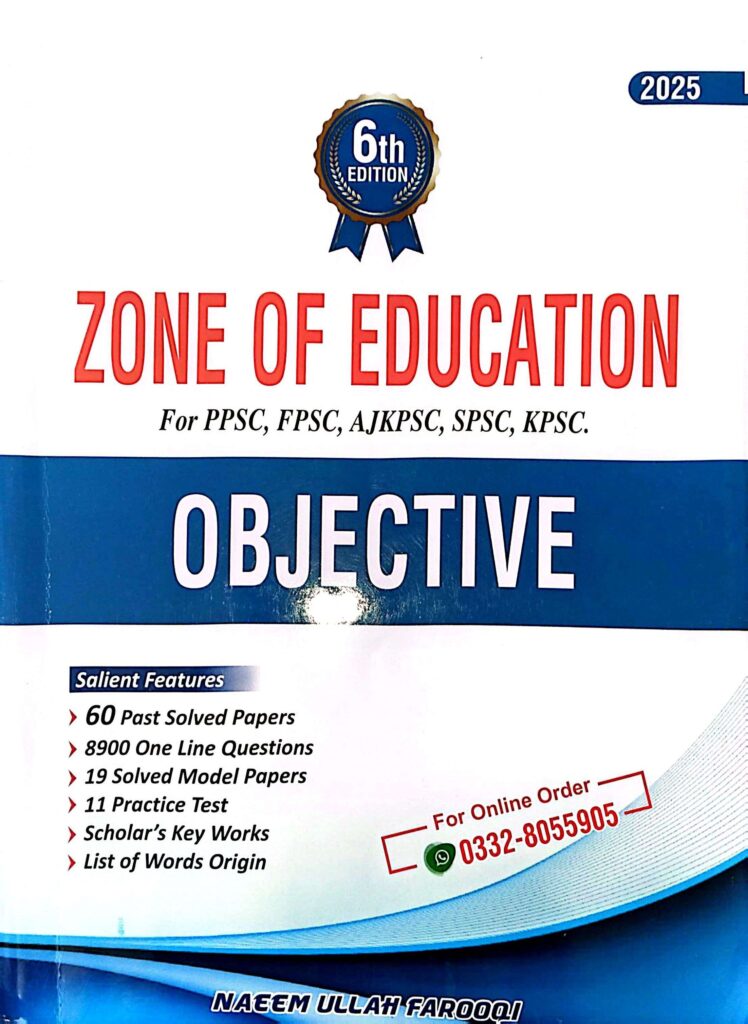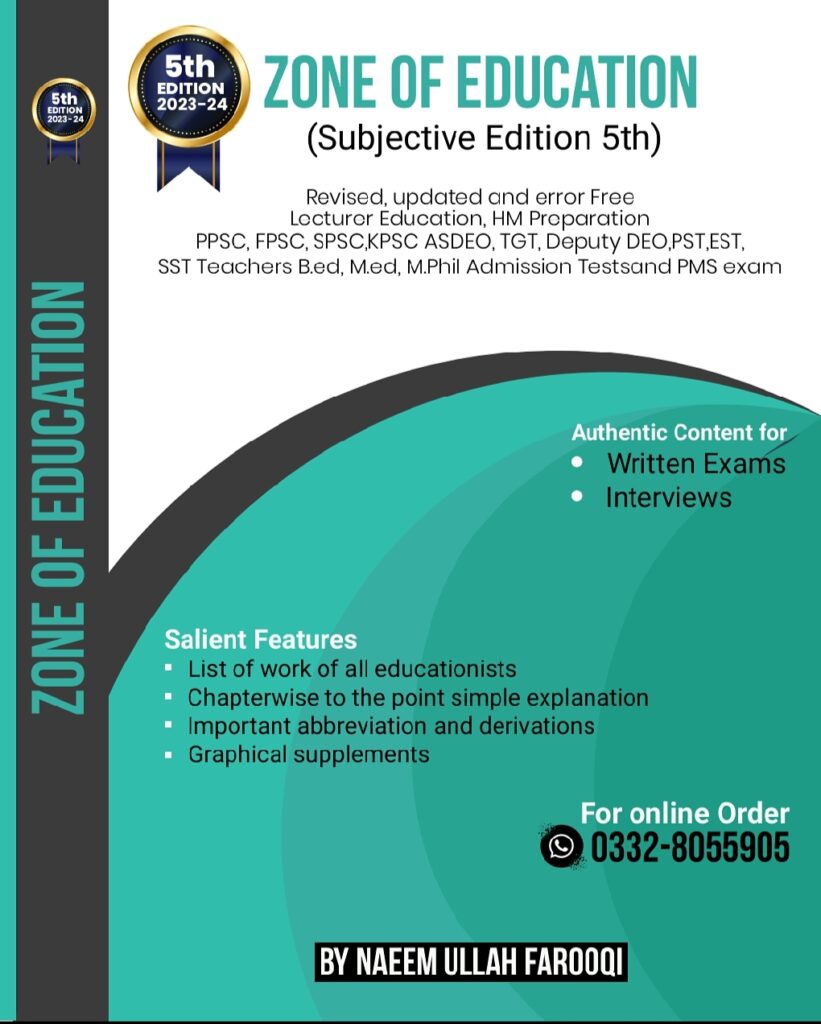Psychology
. Semantic Memory is:
· (a) Memory for meanings
· (b) Memory for personal experiences
· (c) Memory for motor skills
· (d) Memory tied to place
102. Which school of thought does Sigmund Freud belong to?
· (a) Humanistic
· (b) Psychoanalysis
· (c) Structuralism
· (d) Behaviorism
103. Trial and error theory was presented by:
· (a) Pavlov
· (b) Thorndike
· (c) Skinner
· (d) Bruner
104. Pavlov’s work was with:
· (a) Cats
· (b) Rats
· (c) Rabbits
· (d) Dogs
105. Learning by insight theory is also called:
· (a) Classical conditioning
· (b) Operant conditioning
· (c) Gestalt
· (d) Both a, b
106. Stimulus plays a dominant role according to:
· (a) Classical conditioning
· (b) Operant conditioning
· (c) Both a and b
· (d) None of a and b
107. Response plays a dominant role according to:
· (a) Classical conditioning
· (b) Operant conditioning
· (c) Both a and b
· (d) None of a and b
108. Cognitive learning theory was presented by:
· (a) Thorndike
· (b) Skinner
· (c) Pavlov
· (d) Bruner
109. Projective techniques are used to measure:
· (a) Achievement
· (b) Aptitude
· (c) Personality
· (d) Intelligence
110. Cause of frustration is:
· (a) Forces in the environment
· (b) Personal weakness
· (c) Conflicts among motives
· (d) All of the above
111. In the pre-operational stage, the child learns rapidly:
· (a) Language
· (b) Ability of expression
· (c) Both a & b
· (d) None of a & b
112. The child begins to understand the principles of conservation at:
· (a) Sensory motor stage
· (b) Pre-operational stage
· (c) Concrete operational stage
· (d) Formal operational stage
113. In the concrete operational stage, the child:
· (a) Increases knowledge
· (b) Makes discussions
· (c) Meets people
· (d) All of the above
114. Mental development reaches its climax during:
· (a) Sensory motor stage
· (b) Pre-operational stage
· (c) Concrete operational stage
· (d) Formal operational stage
115. The main characteristic of the formal operational stage is:
· (a) Imagination
· (b) Aesthetic sense
· (c) Creativity
· (d) All of the above
116. Thinking and reasoning is the characteristic of:
· (a) Sensory motor stage
· (b) Pre-operational stage
· (c) Concrete operational stage
· (d) Formal operational stage
117. The word “emotion” is derived from the Latin word:
· (a) Motion
· (b) Move
· (c) Emovere
· (d) Motivation
118. “Emovere” means:
· (a) Stir up
· (b) To excite
· (c) To agitate
· (d) All above
119. The word “moral” is derived from the Latin word:
· (a) Mos
· (b) More
· (c) Motion
· (d) Move
120. “Mos” means:
· (a) Manner
· (b) Custom
· (c) Habit
· (d) All of the above
121. The theory of psychosocial development was presented by:
· (a) Jean Piaget
· (b) Erikson
· (c) Lawrence Kohlberg
· (d) Reasoning
122. The theory of moral development was presented by:
· (a) Jean Piaget
· (b) Erikson
· (c) Lawrence Kohlberg
· (d) Reasoning
123. The hierarchy of needs was presented by:
· (a) Skinner
· (b) Bruner
· (c) Ausubel
· (d) Maslow
124. The concept of discovery learning was given by:
· (a) Skinner
· (b) Bruner
· (c) Ausubel
· (d) Maslow
125. Alfred Binet worked on:
· (a) Achievement tests
· (b) Intelligence tests
· (c) Aptitude tests
· (d) Personality tests
126. A stimulus that strengthens the response of an organism is:
· (a) Motive
· (b) Reinforcement
· (c) Conditioning
· (d) Response
127. According to Maslow, the most important are:
· (a) Self-esteem needs
· (b) Safety needs
· (c) Physiological needs
· (d) Belonging needs
128. Physical growth is affected by:
· (a) Biological factors
· (b) Environmental factors
· (c) Both a & b
· (d) None of the above
129. Learning means:
· (a) Change in environment
· (b) Change in society
· (c) Change in culture
· (d) Change in behavior
130. The first book on psychology was written by:
· (a) Thorndike
· (b) Pavlov
· (c) Aristotle
· (d) Skinner
131. Educational Psychology is the branch of:
· (a) Pure psychology
· (b) Applied psychology
· (c) Advanced psychology
· (d) Practical psychology
132. The discipline of Psychology is:
· (a) Since the birth of man
· (b) Before Christ (B.C.)
· (c) Seventeenth Century
· (d) Relatively new
133. Behaviorism is associated with:
· (a) Sigmund Freud
· (b) B.F. Skinner
· (c) J. B. Watson
· (d) Johan Wright
JOIN ZONE OF EDUCATIONPK!
Discover the most comprehensive and reliable pedagogy resources in Pakistan, curated for competitive exam success. Our content covers all competitive exam MCQs, including PPSC, FPSC, AJKPSC, SPSC, and more. Designed to empower learners with top-notch material and insights, trust us for your preparation journey!



